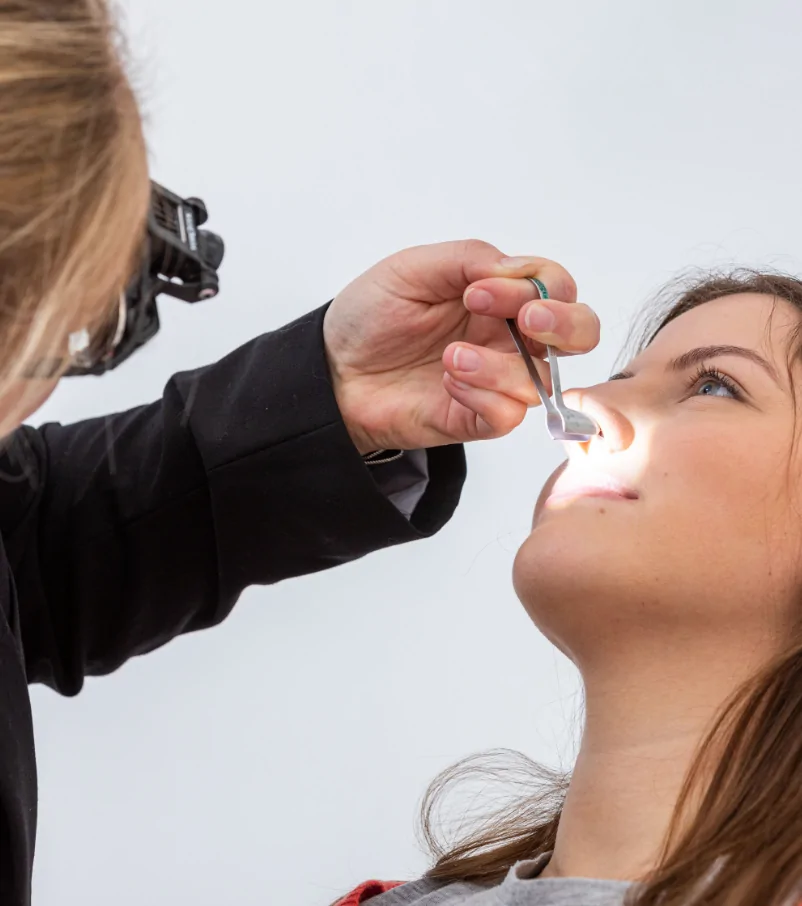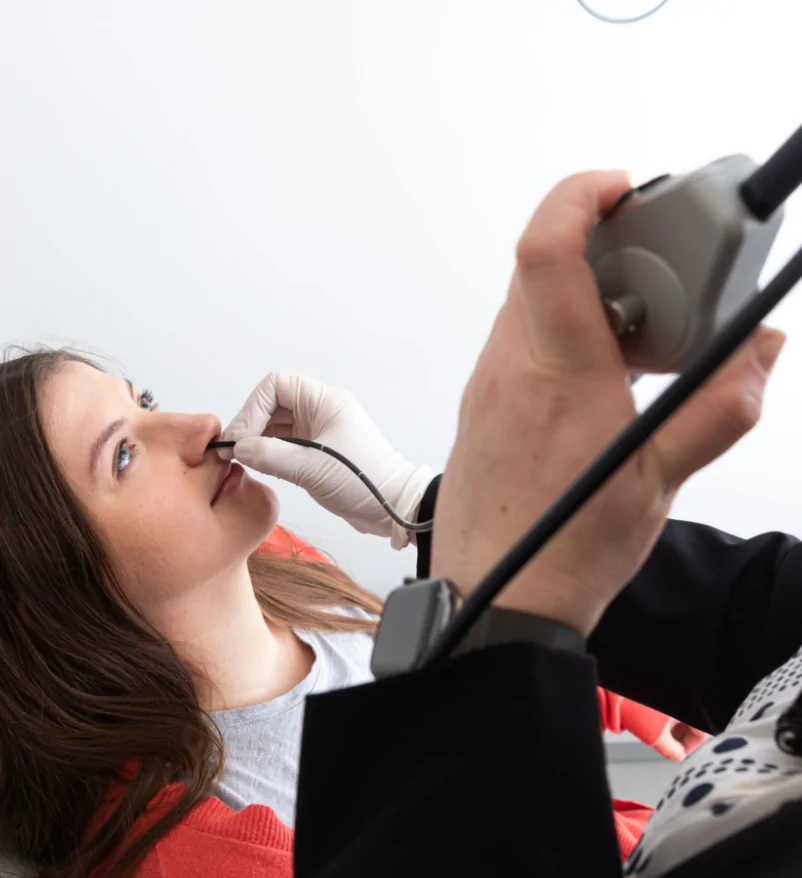
Nasal Obstruction (Congestion)
Nasal obstruction (a blocked nose) is a common complaint. Most people experience nasal congestion from time to time, especially if they have a head cold. Some people suffer from ongoing nasal obstruction that affects their quality of life.
Can nasal obstruction be bad for my health?
Ongoing nasal obstruction can affect your health negatively. It may cause unpleasant symptoms like difficulty breathing through the nose, facial pressure, and an impaired sense of smell. Chronic nasal obstruction is also linked to:
- Obstructive Sleep Apnoea (OSA).
- Fatigue.
- Middle ear infections and Eustachian tube dysfunction.
- Dental problems, as a result of excessive mouth breathing.
What causes nasal obstruction?
Common causes of nasal obstruction include:
- Infections
Upper respiratory tract infections like the common cold or acute sinusitis are the most common reason for a blocked nose.
- Allergic rhinitis (“Hay fever”)
An allergy occurs when your body overreacts to a foreign substance. Nasal allergies, often caused by allergens in the air you breathe, may cause recurrent or ongoing nasal congestion.
- Non-allergic rhinitis
Irritants that are not true allergens, like tobacco smoke, can also cause nasal congestion.
- Chronic sinusitis and nasal polyps
Chronic sinusitis is nasal sinus inflammation that lasts for at least 3 months. Nasal polyps are linked to chronic sinusitis and allergic rhinitis. They are soft, non-cancerous growths in the nose.
- Enlarged adenoids
The adenoids are lymphoid tissue (like your tonsils) that are found at the back of your nose. Swollen adenoids commonly cause ongoing nasal obstruction, especially in children.
Rarely, chronic nasal obstruction may be due to a serious underlying condition, such as nasal cancer. It is important to seek medical advice for any ongoing symptoms.
What can I expect at my ENT appointment for nasal obstruction?
During your appointment with Dr Crawford, she will ask about your medical history in detail and conduct a physical examination. She will also perform a nasoendoscopy, which allows her to see inside your nose using a thin, flexible tube with a camera at its end. You may be referred for blood tests or to an allergy specialist to determine if you have allergies.
How is nasal obstruction treated?
Treatment for nasal obstruction depends on the cause.
Most upper respiratory tract infections are caused by viruses and resolve on their own. A bacterial infection may require treatment with antibiotics and anti-inflammatory therapy like oral steroids.
Allergic rhinitis can be treated with simple measures like allergen avoidance, saline nasal rinses and a steroid nasal spray. Immunotherapy (“allergy desensitisation”) might also be a longer-term disease treatment option to try and decrease the reaction you have to underlying allergies. For this, you will need to be referred to an allergist.
If nasal obstruction is caused by underlying structural problems, surgery may be needed.

What does nasal surgery involve?
Various procedures may be used to treat nasal obstruction. These include:
- Septoplasty or Septorhinoplasty
Septoplasty is surgery to straighten the nasal septum (the dividing wall between the left and right side of the nose). Septorhinoplasty corrects the septum, as well as the external appearance of the nose. A septorhinoplasty (or nose job) is usually carried out by an ENT surgeon who has done extra training in facial aesthetic surgery. Dr Crawford does not perform septorhinoplasty and would ensure you are referred on to another specialist if you require this type of procedure.
- Turbinoplasty
This minor operation trims the inferior turbinate bones that are found on the sides of your nasal cavities. It is often done in conjunction with a septoplasty.
- Adenoidectomy
This is a small procedure to remove problematic adenoids and is most commonly performed in children.
If you are experiencing ongoing nasal obstruction, there is no need to suffer in silence! Help is available. Dr Julia Crawford will gladly accept a referral from your GP. Bookings can be made at 02 8319 9434.
